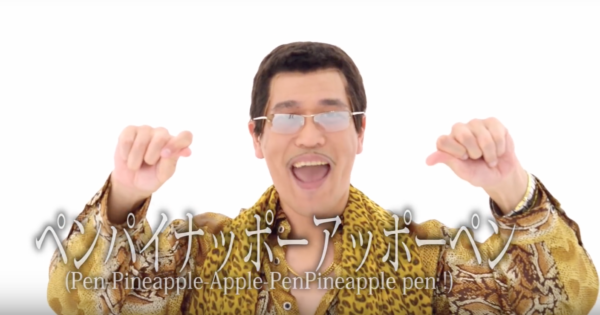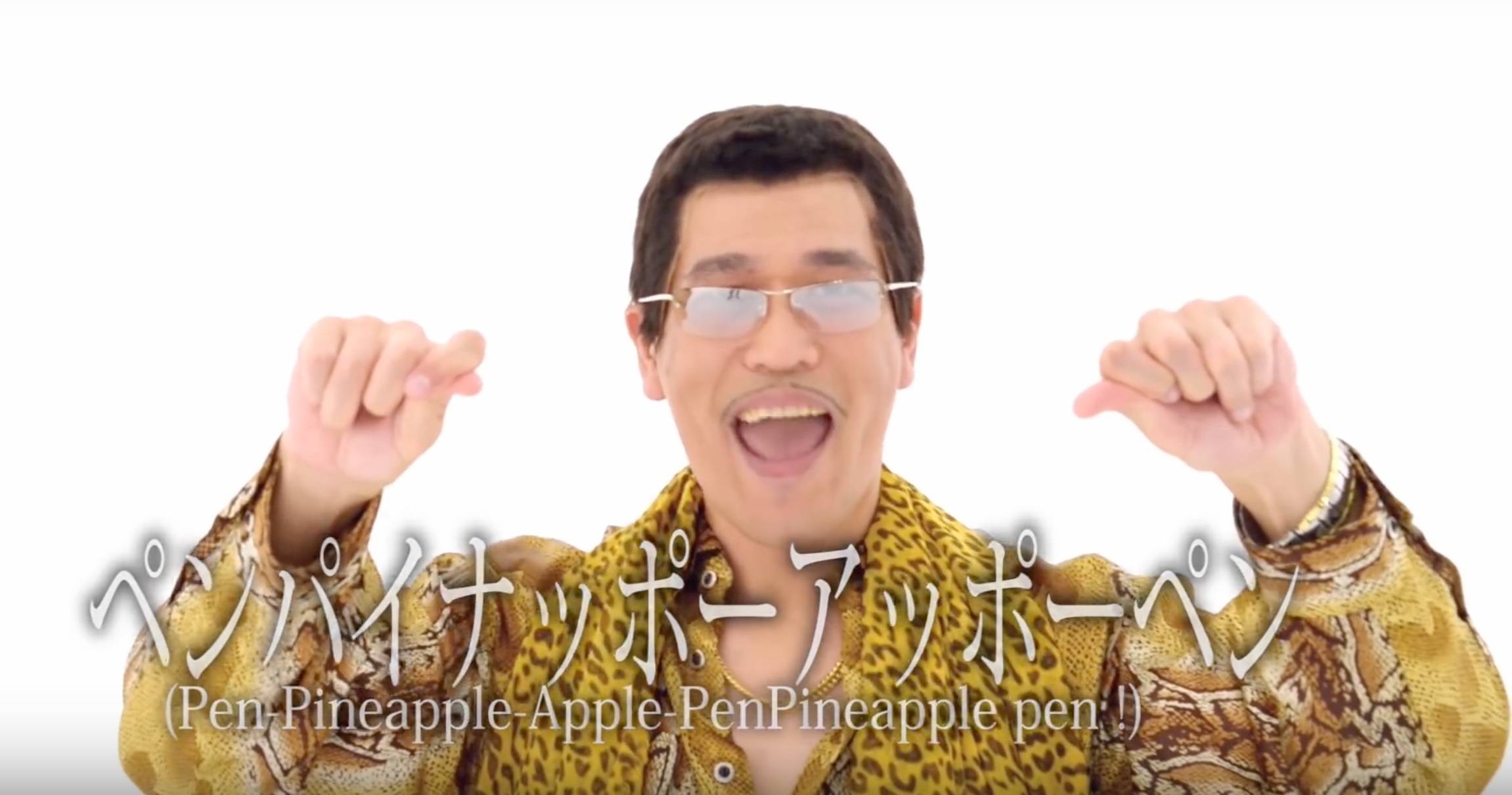
A man dressed in a yellow, gaudy, animal-printed outfit leaps around singing “PEN PINEAPPLE APPLE PEN,” matched with techno music. It’s hard to forget. It’s also hard to know why it became so popular at all.
“PPAP (Pen-Pineapple-Apple-Pen),” a 45-second Youtube video that broke the Guinness World Record for shortest song to enter the Billboard Hot 100 charts in Japan and the US, quickly became a global trend in late 2016. Its music video has now been viewed over 110 million times. But why did it go viral?
None other than popstar Justin Bieber, whose own fame was kickstarted from Youtube, helped the song’s quick rise to the top. His simple tweet “My favorite video on the internet,” coupled with “PPAP’s” music video, was liked over 100,000 times and undoubtedly contributed to “PPAP’s” popularity.
The Japanese artist, Daimaou Kosaka, who created the fictional character and singer Pikotaro, is a comedian and DJ. Pikotaro attributes much of the song’s rise to Justin Bieber and says that he wants to continue to make fun videos.
What started as a $950 self-produced, self-edited project expanded to professional commercials for Fanta and Docomo and many appearances on popular television channels, including Kohaku, the famous Japanese singing competition that takes place every New Year’s Eve. (Not to mention frequent onscreen and offscreen speculation about the man behind Pikotaro.) It’s also creating positive influences, in that groups parodying “PPAP,” such as those supporting lung-cancer patients, have received more attention and awareness.
But what was it that appealed to the first few viewers of the music video?
“PPAP” seems to include all the aspects of a viral video — repetitive, simple and funny. Pikotaro’s small dance is easy to follow, enough for even small children to replicate and post on Youtube in response. His lyrics “I have a pen. I have an apple. Apple pen!” may not make a lick of logical sense, but they are repetitive enough to dance to, and the main melody is repeated so many times that it’s no wonder “PPAP” is an earworm.
His costume only adds to what may have initially appealed to the Japanese community. His bright attire resembles what yakuza (Japanese gangsters) might wear. This intimidating impression is further solidified in the first few seconds of the video, when Pikotaro stares down at the camera (he’s six foot one), unsmiling. But as soon as the song starts, Pikotaro is a different man. He sways and bops to the music and dances around like he’s having the time of his life.
Pikotaro’s infectious smiles and cute little dances with hands and feet stand in stark contrast with his gangster-like clothes. The irony between what a Japanese viewer would expect and what he/she actually sees only emphasizes to the humor the artist-DJ-comedian aimed for. Add nonsensical English lyrics and catchy techno music thanks to Kosaka’s DJ experience, and the result is a tweet-worthy, conversation-starting viral song.
Whatever the reason for “PPAP’s” viral fame, Pikotaro’s one motive remains true and resonates with anyone who watched the video — to make fun videos and brighten your day. While the artist admits that he has yet to make a single yen off of the actual song, his work will nonetheless fulfill its purpose of fun, and audiences worldwide can now look forward to his future career in comedy and music.
Contact Maimi Higuchi at maimih ‘at’ stanford.edu
